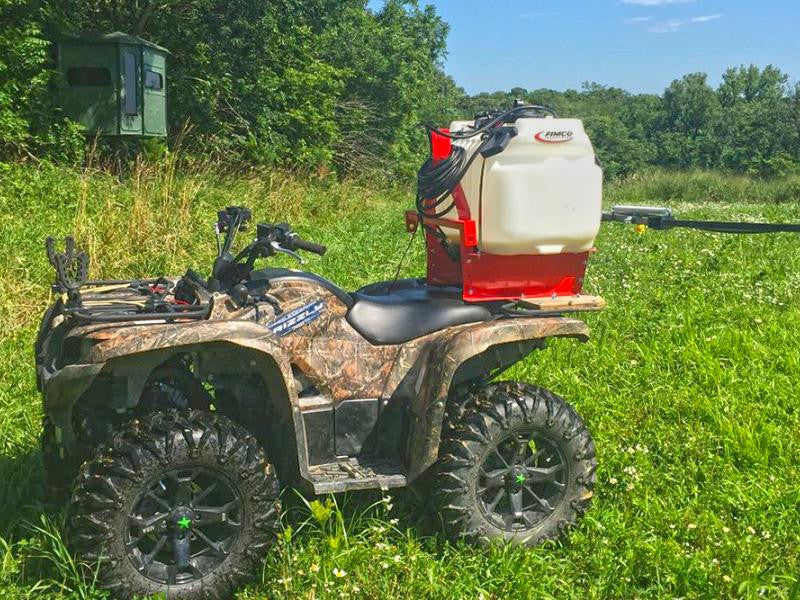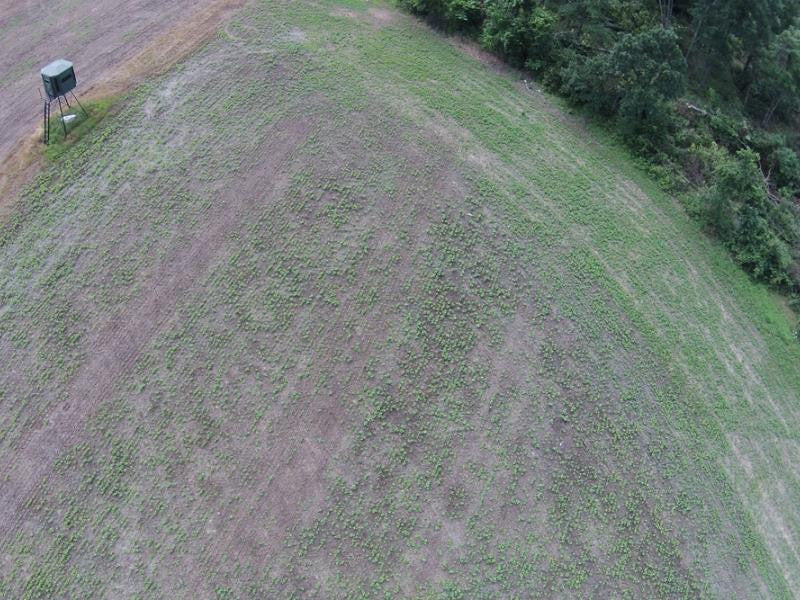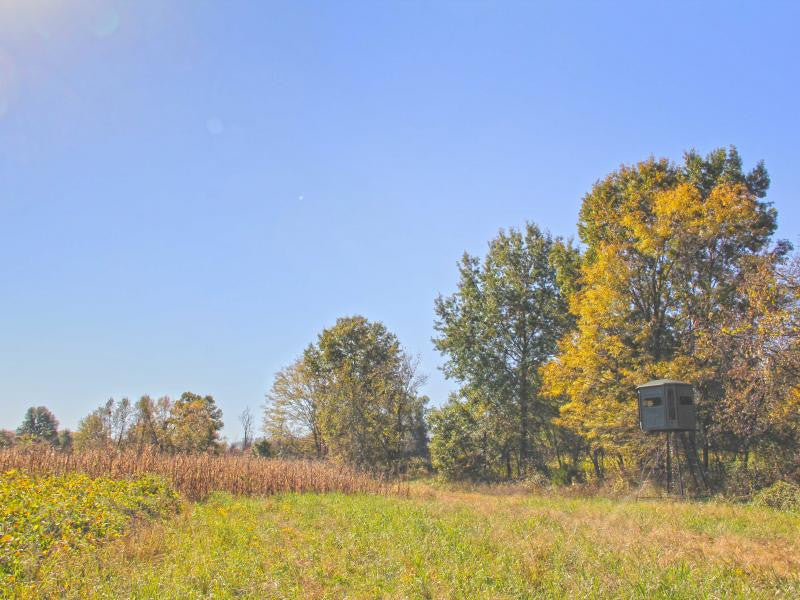hunting-blinds
stands

Redneck Leasing 101
6 min read
Research shows that more than any other factor, lack of places to hunt is what is driving hunters and outdoorsmen away from outdoor sports like bowhunting. Many believe finding a good place to hunt on public land is nearly impossible. Many people don’t have the money to buy a large chunk of private property so since they can’t find a good place to hunt, they walk away from the sport. There is a third option which is leasing. Some people love leasing land; others hate the idea of paying to hunt land. One thing is certain: regardless if you love it or hate it, leasing is here to stay and is probably one of the most affordable ways to hunt and experience good hunting without hunting with an outfitter or buying your own land.
Joe Brooks from Base Camp Leasing knows the ins and outs of leasing. Base Camp Leasing specializes in leasing hunting land to hunters. They are the go between for land owners and hunters. “Most land owners who lease are farmers who must find ways to bring income through the door. They grow crops, lease fields out and more of them are leasing hunting rights because they need the income. Leasing is one way for farmers to make money and for hunters to find a good place to hunt,” Brooks explained. According to Brooks, many people cringe when they think about leasing land but he believes we should consider it an investment. “Hunters have no problem spending a lot of money on equipment. We purchase new equipment so we can enjoy our sport. Leasing land is like buying equipment. One reason leasing is so popular and more farmers are leasing is because leasing requires the hunter to invest themselves in the property so they take care of it and treat it like their own.”
The question is: if you want to lease where do you lease and how much should you plan to pay? “The location of the property and how much property there is can greatly impact the price. Regardless of whether a person plans to go through a leasing company like ours or leases on their own, they need to be educated on what the going rate is where they plan to lease. Some leases are $10 an acre; others are $30 an acre.” Brooks warns people not to try to get a cheap lease. “Often a hunter will knock on the door of a landowner and try to give them a few hundred dollars for a lease. That might work for a year but it rarely works long term. If a hunter or group of hunters wants to lease a piece of property, they are best to do some research and know what the going rate is in the area per acre and offer the farmer the going rate.”
When considering a lease, one important thing to consider is whether the land owner lives on the ground where you will be hunting. “It is especially important when leasing out of state that the property owner lives on the ground you will be hunting, or near it. This will help reduce the chances of trespassing and hunting stands and other things being stolen. It’s something all potential leasers should consider,” Brooks advised.
Another important thing to consider is hunting rights. “When putting together a lease, it is important to note that hunters should make sure they are the only one with hunting rights. The last thing a hunter wants to see is the farmer’s son on opening day of deer season or the farmer’s uncle on the second day of the season. When putting a lease together, the hunters should always have all hunting rights. If not, it should be negotiated up front and in writing.”
Back in the good old days, it wasn’t uncommon for a lease to be negotiated over a cup of coffee and everything was finalized via a handshake. The good old days are gone. “A lease should be in writing so both sides know exactly what they will be receiving beforehand. A written contract is a necessity and keeps everything black and white with no gray area,” Brooks noted.

Another thing to consider is what you can do with the land. Some land owners may only allow you to park in a certain place and prohibit the use of ATV’s on their land. Other land owners may allow ATV use and allow you to put in food plots. Every land owner is different. Think about these things beforehand. “Some land owners will put in food plots for you, others will charge you and some will let you do it. All of that must be thought of beforehand,” Brooks suggested.
Brooks also advises leasing a piece of property for a year minimum. “In a year, you can get a lot done on a piece of property, understand the hunting, and potentially kill a nice buck. It gives you plenty of time to decide if you want to lease the property again. Leasing for a month or a few weeks during deer season doesn’t work very well,” Brooks stated. A yearlong lease gives you plenty of time to hang stands, put out trail cameras and scout. These things cannot be done in a few weeks.
When leasing, a subject that will always come up is liability insurance. Everyone is afraid of being sued these days and having liability insurance calms the fears of the land owner. “When someone leases through us, we provide three million dollars of liability insurance which will protect both parties in case something goes wrong,” Brooks said.

If you are the type of person who wants to handle a lease on your own, there is an organization out there called The American Hunting Lease Association that will provide you with a contract to use between you and the land owner as well as liability insurance for a couple hundred dollars. Brooks suggests that all hunters have liability insurance when putting together a lease. It makes the landowner feel good and doesn’t cost much money.
Some hunters prefer to buy land. If that is you, Brooks says you may want to lease land first. “We provide leases for many hunters who want to buy land in a certain area but they want to lease property in that area first to make sure it provides the hunting opportunities they desire before investing in land. If you are in the market for hunting land, maybe you should lease first,” Brooks suggested.

As you can see, a lot goes into a lease. Finding the right piece of property can be difficult whether you are looking for land within your town or eight hours away. This is why many hunters choose to hire a leasing agency like Base Camp Leasing. “We have a large network of landowners across the country. A hunter can call me and tell me what they are looking for and I can usually find it. I also take care of the contract and make sure all the I’s are dotted and the T’s are crossed,” Brooks added.
When you are considering whether you should bite the bullet and lease, realize there is strength in numbers. “Often the best way to lease is with a group of friends. Leasing a large chunk of land can be expensive but with a few friends involved, the work load gets shared, as does the financial burden,” Brooks explained.
Most of us have no problem buying a new bow every couple years and a new pickup every few years. If you are looking to kill a monster buck, maybe it is time to break out the check book and lease land.
If breaking out the checkbook isn’t in the cards, there is another option that requires elbow grease. “I have bartered with farmers. I sometimes offer to plant crops for a farmer in return for the right to hunt,” Danny Little from Redneck Blinds said. During the harvest season, farmers always need a helping hand. Over the years, I have encountered many hunters who help harvest crops, feed the livestock or mend the fence. I have fed cow calves in return for hunting rights. I know tradesmen like electricians and welders who have worked for a farmer for the right to hunt. Finding a farmer who will agree to this type of lease isn’t always easy but for those willing to knock on doors and spend some time working, if enough doors are knocked on, sooner or later a land owner will either sign a lease or allow a hard-working person the right to hunt.
At the end of the day, all of us who hunt must decide whether hunting is worth spending a lot of time or money on. In both cases, a serious commitment will be required.
To learn more about Joe Brooks and Base Camp Leasing, check out www.basecampleasing.com. To contact Joe, email him at: joe@basecampleasing.com
Leave a comment
Comments will be approved before showing up.

